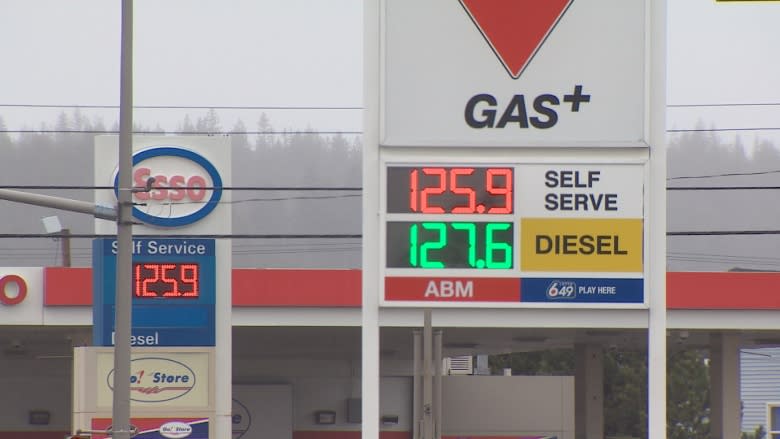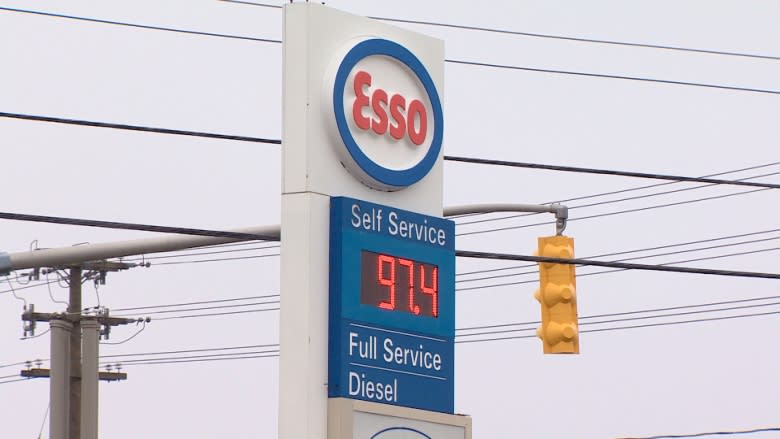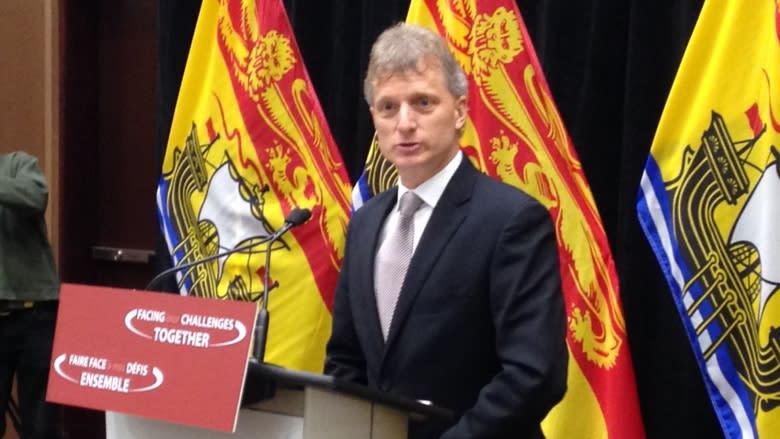New Brunswick's low-price gas tax remains as high prices return
As fuel prices surge, there's no sign the provincial government will revisit the higher gasoline and diesel taxes it imposed in 2015 when pump prices were low.
On Thursday morning, New Brunswick's Energy and Utilities Board raised the maximum amount retailers could charge consumers for self-service unleaded gasoline to just above $1.29 per litre.
It's the highest price the board has authorized since October 2014 and nearly 40 cents more than the slumping prices in late 2014 and early 2015 that prompted the province to step in and raise fuel taxes.
"Given the significant decline in global oil prices, we have seen gasoline prices fall by approximately 30 cents per litre over the past year," said former Liberal finance Minister Roger Melanson in his March 2015 budget address 10 weeks after retail prices in the province fell below $1.
"With prices expected to remain low for an extended period, there is room to increase gasoline and diesel taxes while having a limited impact on the New Brunswick economy," he said.
No change coming
That tax increase has remained in effect even as petroleum markets have rebounded, and New Brunswick's department of finance not intending to make any changes.
"We are not considering any change to gas taxes at this time," wrote department spokeswoman Sarah Bustard in an email to CBC News.
Bustard said gas tax revenue is now needed to fulfil the province's "made-in-New Brunswick solution to carbon pricing, which sees existing gas taxes re-purposed to address climate change."
Trading prices for gasoline in New York, the basis of pricing in New Brunswick, have jumped 30 per cent since the tax was imposed, most of that occurring in the last two months.
New Brunswick motorists consume 1.5 billion litres of gasoline and diesel fuel per year, and due to the price slump in 2015, Melanson raised taxes individually 1.9 cents on gas and 2.3 cents on diesel.
That was to generate an additional $28.2 million per year in direct taxes and a further $2.3 million in provincial HST on those taxes. In the three years since, the tax increases brought in about $91 million.




